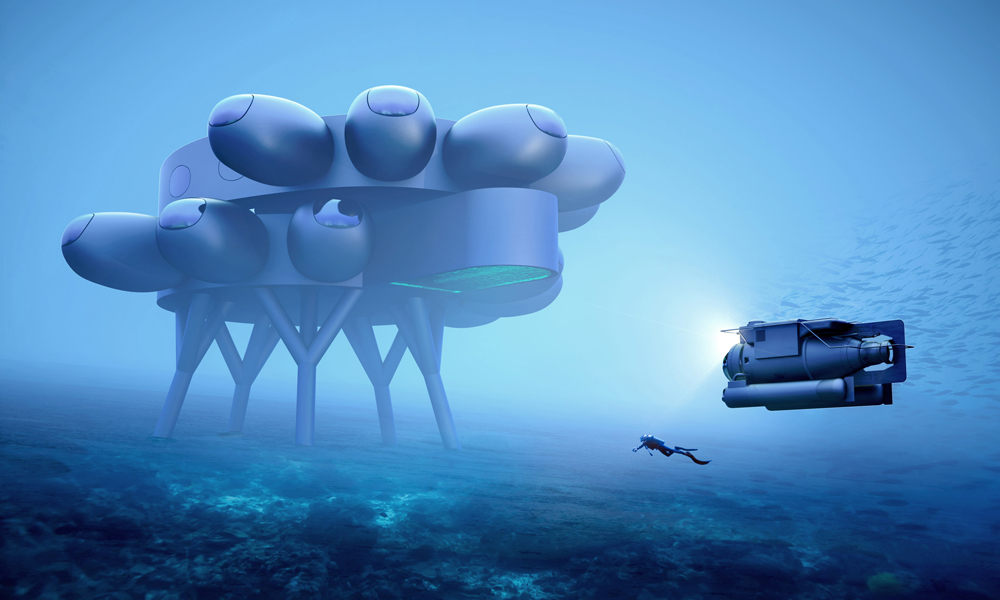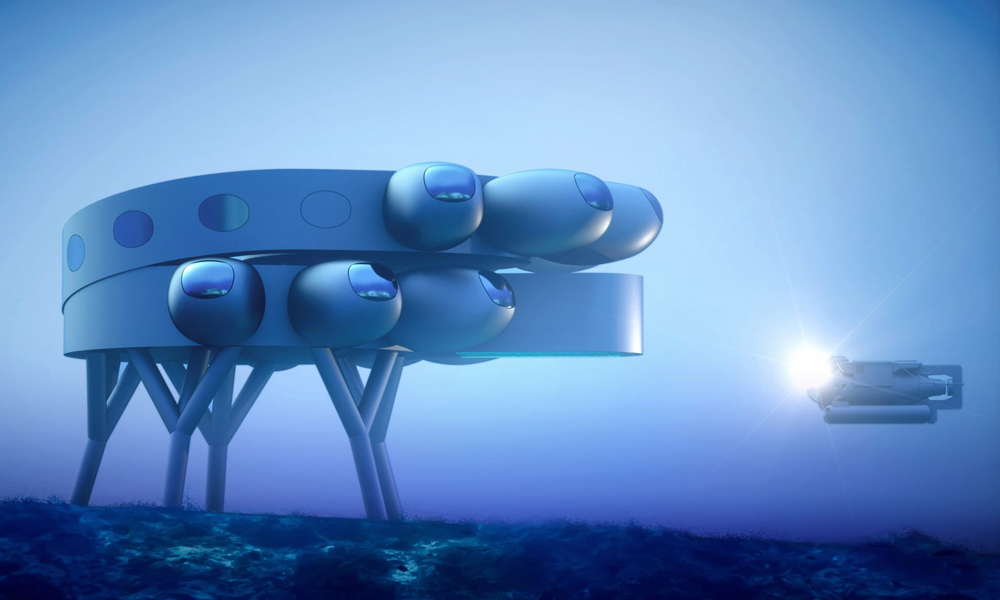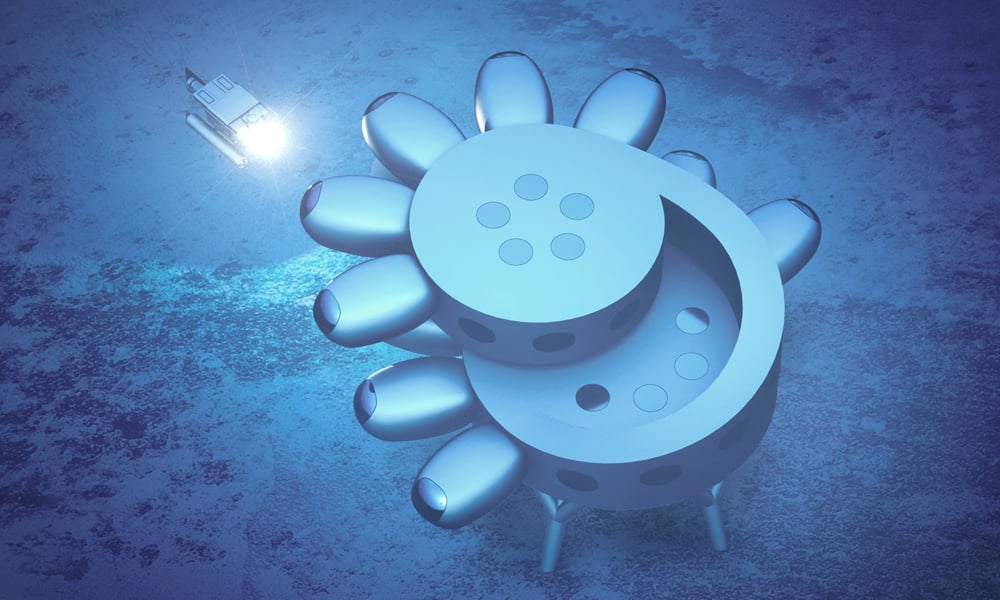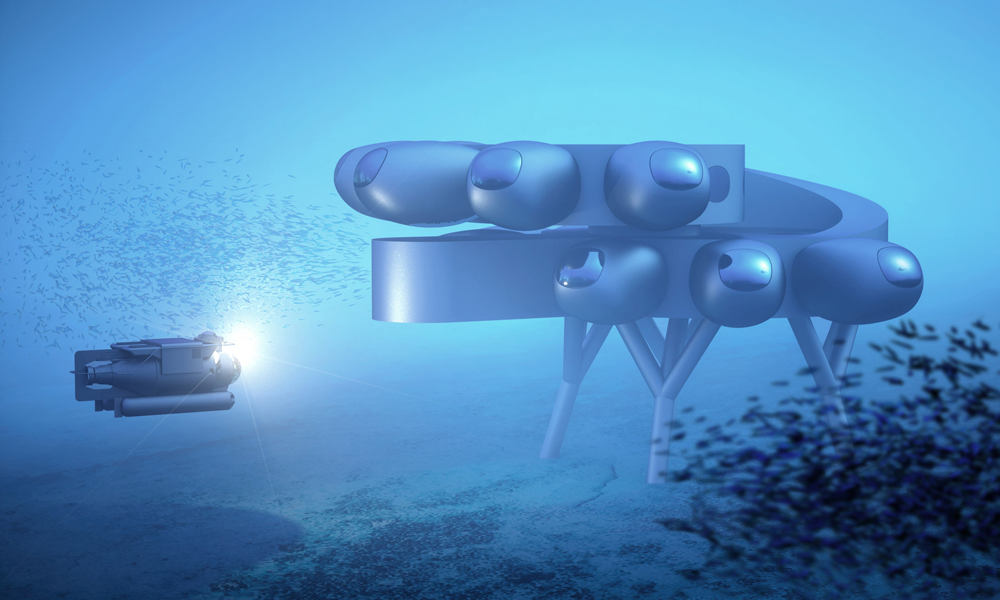Swiss designer, entrepreneur and educator Yves Béhar has designed everything from Movado watches to August Smart Locks in recent years, but his latest creation is something decidedly more opulent and below the surface. Proteus is a state-of-the-art marine research project that’s billed by benefactor Fabien Cousteau as “the ocean’s equivalent to the International Space Station.” It is a truly remarkable project that has implications in all aspects of research ranging from climate change and isolated greenhouses to pressurized living and human interaction. As Behar told Dezeen, “The research station will enable the discovery of new species of marine life, create a better understanding of how climate change affects the ocean, and allow for the testing of advanced technologies for green power, aquaculture, and robotic exploration.” The entire habitat will be powered with renewable energy using a mixture of wind, solar and Ocean Thermal Energy Conversion (OTEC), which could all potentially be used for otherworldly exploration. In other words, it’s an exciting under the sea experiment that could serve as proof of concept for everything from Lunar habitation to Mars colonization.
More Travel

The Great Winter Escape
Unexpected winter destinations to visit around the globe.
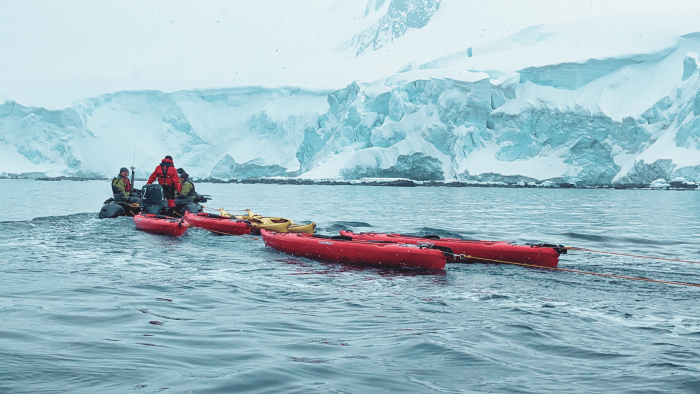
The Bucket List of Remote Places to Kayak
Here's your guide to the coolest places to kayak.

You Don’t Need Couture Cash to Live It Up in Paris
Your chic, sophisticated, and smart visitor’s guide to the City of Light.

